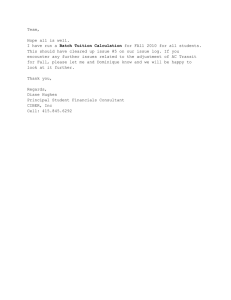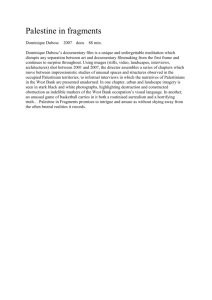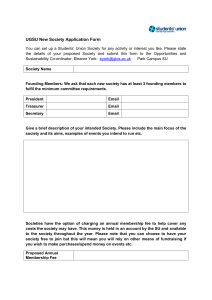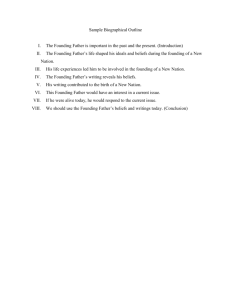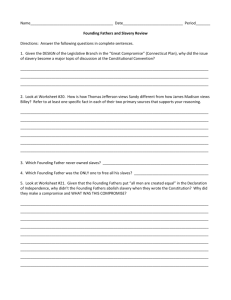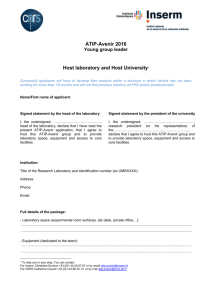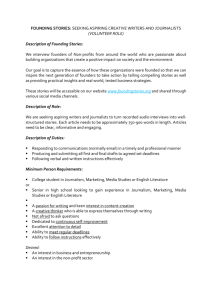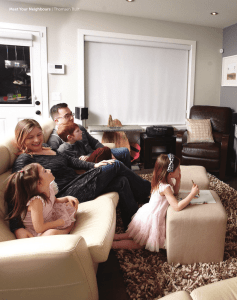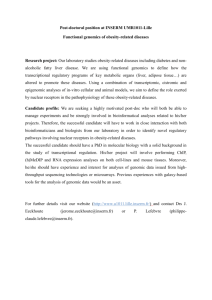"In France, there is no environmental policy up to the level
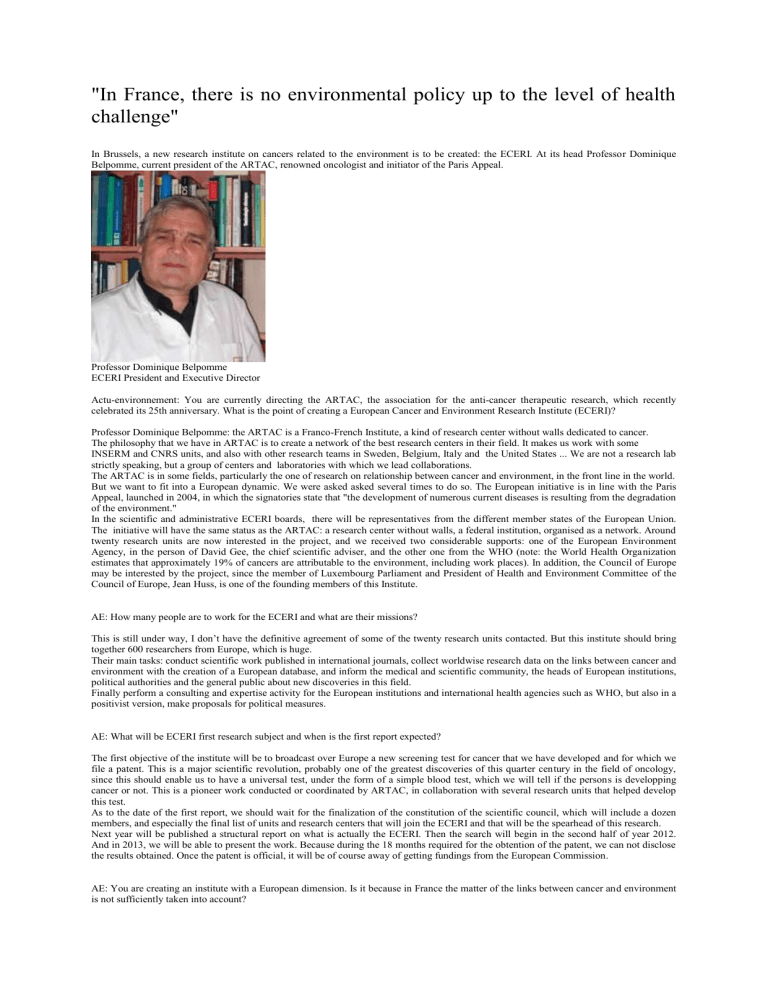
"In France, there is no environmental policy up to the level of health challenge"
In Brussels, a new research institute on cancers related to the environment is to be created: the ECERI. At its head Professor Dominique
Belpomme, current president of the ARTAC, renowned oncologist and initiator of the Paris Appeal.
Professor Dominique Belpomme
ECERI President and Executive Director
Actu-environnement: You are currently directing the ARTAC, the association for the anti-cancer therapeutic research, which recently celebrated its 25th anniversary. What is the point of creating a European Cancer and Environment Research Institute (ECERI)?
Professor Dominique Belpomme: the ARTAC is a Franco-French Institute, a kind of research center without walls dedicated to cancer.
The philosophy that we have in ARTAC is to create a network of the best research centers in their field. It makes us work with some
INSERM and CNRS units, and also with other research teams in Sweden, Belgium, Italy and the United States ... We are not a research lab strictly speaking, but a group of centers and laboratories with which we lead collaborations.
The ARTAC is in some fields, particularly the one of research on relationship between cancer and environment, in the front line in the world.
But we want to fit into a European dynamic. We were asked asked several times to do so. The European initiative is in line with the Paris
Appeal, launched in 2004, in which the signatories state that "the development of numerous current diseases is resulting from the degradation of the environment."
In the scientific and administrative ECERI boards, there will be representatives from the different member states of the European Union.
The initiative will have the same status as the ARTAC: a research center without walls, a federal institution, organised as a network. Around twenty research units are now interested in the project, and we received two considerable supports: one of the European Environment
Agency, in the person of David Gee, the chief scientific adviser, and the other one from the WHO (note: the World Health Organization estimates that approximately 19% of cancers are attributable to the environment, including work places). In addition, the Council of Europe may be interested by the project, since the member of Luxembourg Parliament and President of Health and Environment Committee of the
Council of Europe, Jean Huss, is one of the founding members of this Institute.
AE: How many people are to work for the ECERI and what are their missions?
This is still under way, I don’t have the definitive agreement of some of the twenty research units contacted. But this institute should bring together 600 researchers from Europe, which is huge.
Their main tasks: conduct scientific work published in international journals, collect worldwise research data on the links between cancer and environment with the creation of a European database, and inform the medical and scientific community, the heads of European institutions, political authorities and the general public about new discoveries in this field.
Finally perform a consulting and expertise activity for the European institutions and international health agencies such as WHO, but also in a positivist version, make proposals for political measures.
AE: What will be ECERI first research subject and when is the first report expected?
The first objective of the institute will be to broadcast over Europe a new screening test for cancer that we have developed and for which we file a patent. This is a major scientific revolution, probably one of the greatest discoveries of this quarter century in the field of oncology, since this should enable us to have a universal test, under the form of a simple blood test, which we will tell if the persons is developping cancer or not. This is a pioneer work conducted or coordinated by ARTAC, in collaboration with several research units that helped develop this test.
As to the date of the first report, we should wait for the finalization of the constitution of the scientific council, which will include a dozen members, and especially the final list of units and research centers that will join the ECERI and that will be the spearhead of this research.
Next year will be published a structural report on what is actually the ECERI. Then the search will begin in the second half of year 2012.
And in 2013, we will be able to present the work. Because during the 18 months required for the obtention of the patent, we can not disclose the results obtained. Once the patent is official, it will be of course away of getting fundings from the European Commission.
AE: You are creating an institute with a European dimension. Is it because in France the matter of the links between cancer and environment is not sufficiently taken into account?
Enough, certainly not, but a first step has been done. Today there is not a week without hearing about environment. But France is a somehow a special case in Europe for environmental policy. Much has been said, particularly during the Grenelle Round Table, but very little was done. And unfortunately, what is an nounced is rather negative. I note, however, that the National Cancer Institute, the Inca, is beginning to recognize the role of the environment. The Inserm as well is beginning to recognize that research should probably be pushed forward to determine the implication of the environment in the case of cancer. All this reflects a dynamic, that anyway, will not stop overnight because it is based on a major part of truth. While it is clear that there may be oppositions or controversy. I underwent a great number of them when I got interested in pesticide in Martinique and Guadeloupe. But the controversy is collapsing because the scientific data just confirm what I had once announced, the links between pesticides and prostate cancer in particular.
AE: In addition, you are very clear about ECERI desire for scientific and financial independence. Why is this important?
Independence is what makes the credibility of the ARTAC today. This will make the credibility of the ECERI tomorrow. The Institute will therefore ensure that EU funds are not tainted by economic interests conflicting scientific truth. It is clear that as regards the paradigm level of that we will defend the ECERI results will be impartial in the publication of the data obtained. In France, there is now a loss of independence of science simply because of an infiltration by the economic and political lobbies. If the State establishes a priori that there is no link between electromagnetic fields and electrosensitivity and researchers believe that there is one, the study will not be funded. The State does not fund research that may give results in opposition to the policy of the country. At European level the hope is that this is different.
Even if some European institutions are certainly infiltrated by lobbyists, as regards funding allocation, if the scientific claims are admissible on scientific basis and based on objective and irrefutable data, there seems to a possibility to obtain credits.
AE: But among the founding members of the ECERI are Corinne Lepage, now MEP, and Paul Lannoye, former MEP Ecolo party. Is this not a problem for the independence of the institute?
These two founding members are known for their impartiality. Moreover, they are not in the scientific council and the board will not interfere with the accuracy of the results. They joined the scientific paradigm that we all claim in the ECERI. But as regards the structure of the ECERI, it is apolitical. When scientific independence is claimed, it can only be based on strict political, economical and social impartiality.
AE: To go back to France, while the carcinogenic effects of certain products such as bisphenol A, ethylene oxide, lead paint was recognized, why are we still surrounded by them ?
Simply because there is no environmental policy up to the level of the health challenge. We are purely in an economic and financial concept with interests in the short term. We must run the economic machine and we don’t take into account the harm of this machine on the environment, and ultimately the health effects of pollution.
For example, Article 5 of the Charter annexed to this Constitution which refers to the precautionary principle includes environment, but not health.
If I lead a political struggle, it is an individual one. The ECERI is out of this fight, since science prohibits any ideology. The role of the
ECERI is to do science, not to advocate in order to make some policies fall under, even if the decisions made are reverseto the interests of our citizens.
Interview by Lauriane Rialhe
